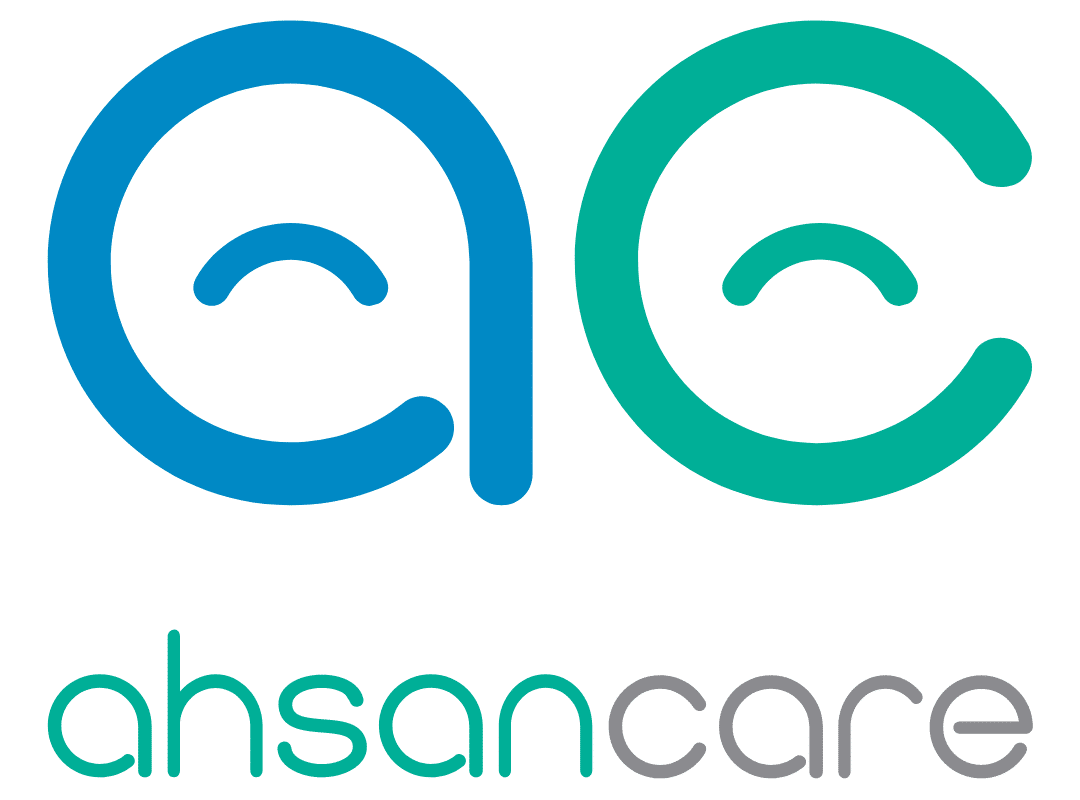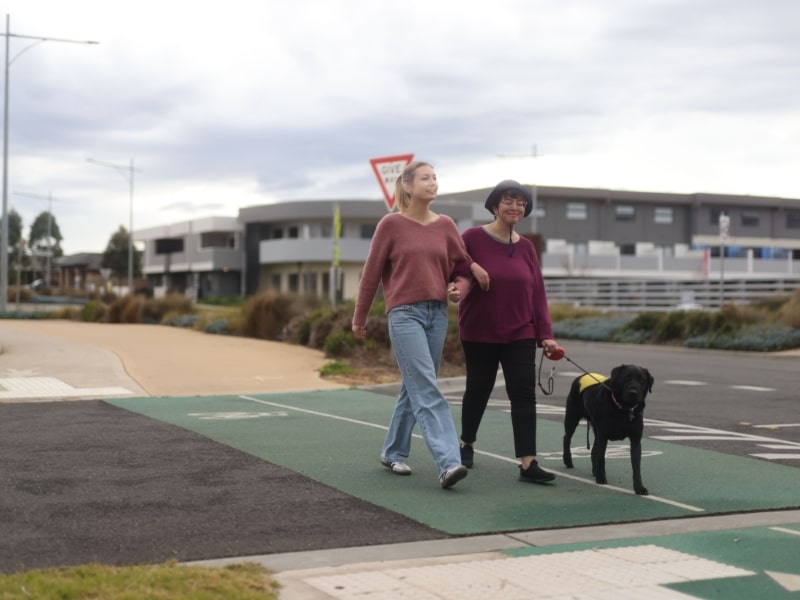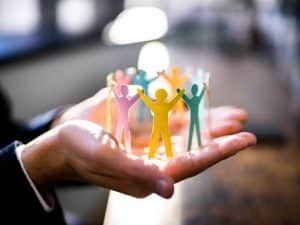Inclusive activities are essential for building social connections and fostering a sense of belonging, especially for individuals who may face challenges accessing social environments. These activities promote emotional well-being, personal growth, and the development of vital social skills. This article will explore why inclusive activities matter, how they enhance social inclusion, and how they improve one’s quality of life.
How do inclusive activities promote meaningful social connections?
Inclusive activities are designed to cater to a diverse range of participants, regardless of their background, abilities, or circumstances. These activities foster a sense of unity and shared experience by involving everyone. Here’s how they promote meaningful connections:
- Encourage interaction across diverse groups: Inclusive activities create spaces for individuals from different backgrounds to interact. This fosters empathy, understanding, and connection, which are essential for building long-term social relationships.
- Provide equal opportunities for participation: When activities are designed inclusively, everyone can participate. This removes the feeling of exclusion and helps people feel they belong, strengthening the bonds formed through shared experiences.
- Promote cooperation and collaboration: Inclusive activities often require teamwork and cooperation, which can deepen participant connections. These shared goals build trust and encourage individuals to support each other.
- Create opportunities for peer support: Social connections can thrive where individuals support each other. Inclusive activities foster peer relationships that encourage mutual help, advice, and friendship.
What role does community engagement play in social inclusion?
Community engagement is a cornerstone of social inclusion. It allows individuals to feel part of something bigger, enhancing their identity and belonging. Here’s why it’s vital:
- Building connections beyond immediate circles: Community engagement brings people together from different areas and backgrounds, helping individuals form connections outside their social networks.
- Creating safe spaces for expression: Engaging in community activities allows people to share their experiences, thoughts, and feelings in a supportive environment, which enhances inclusivity and social integration.
- Providing a platform for diverse voices: Community-based inclusive activities ensure that all voices are heard, regardless of someone’s background or personal challenges. This empowers individuals and creates an environment where everyone has a place to belong.
- Fostering social cohesion: Through active participation in community events and activities, individuals can develop a sense of shared identity, helping to strengthen the bonds that connect the wider community.
How can inclusive activities improve emotional well-being?
Participating in inclusive activities can have a profound impact on your emotional well-being. Here are some ways these activities contribute to mental and emotional health:
- Reduce feelings of isolation: Participation in inclusive activities combats loneliness, helps people feel connected to others and reduces feelings of isolation.
- Boost confidence and self-esteem: Participating in group activities can lead to personal achievements, boosting confidence and self-esteem. People feel more empowered when they know they are accepted and valued by others.
- Provide opportunities for personal expression: Inclusive activities often allow individuals to express themselves through various forms, such as art, music, or team-based tasks. This expression helps to release emotions and improve mental health.
- Foster emotional support networks: People who engage in inclusive activities build emotional support networks that can provide comfort and encouragement during challenging times. Just like recognising the signs your fruit tree needs immediate trimming, identifying early signs of emotional or social neglect is crucial to maintaining a healthy support system.
Why are group-based programs essential for social development?
Group-based programs are integral to social development. They offer an opportunity for individuals to learn and grow in a supportive environment. Here’s how they contribute:
- Facilitate teamwork and collaboration: Group activities provide opportunities for teamwork, allowing individuals to work together towards a common goal. This teaches valuable skills such as communication, cooperation, and conflict resolution.
- Create opportunities for socialisation: Group-based programs provide regular socialisation opportunities, which are vital for individuals to develop and maintain meaningful relationships.
- Allow for shared learning experiences: People learn from one another in group activities. Whether it’s acquiring new skills or gaining different perspectives, these shared learning experiences strengthen social bonds.
- Offer a sense of belonging: Being part of a group creates a sense of belonging, where individuals feel they are contributing to something larger than themselves, fostering a sense of community and connection.
How do inclusive activities enhance social skills and confidence?
Inclusive activities aren’t just about socialising personal growth and confidence-building. Here’s how they help:
- Provide practice opportunities: Through inclusive activities, individuals can practice and enhance social skills in real-life settings, which improves communication and interpersonal relationships.
- Encourage positive reinforcement: Inclusive activities often provide positive feedback and encouragement, which help participants feel valued and confident in their abilities.
- Promote healthy interactions: These activities teach individuals how to interact respectfully and empathetically with others, improving social confidence and reducing social anxiety.
- Build leadership skills: In group settings, participants may take on leadership roles, encouraging them to step out of their comfort zones and develop essential leadership and organisational skills.
In what ways can inclusive activities support personal growth and goal achievement?
Inclusive activities provide a foundation for personal growth and goal achievement by offering structure, support, and the opportunity to excel. Here’s how:
- Provide opportunities for self-discovery: Engaging in activities helps individuals explore their interests, strengths, and passions, contributing to personal growth and goal achievement.
- Help build new skills: Many inclusive activities involve learning new skills, whether physical, cognitive, or creative. Mastering these skills can help individuals reach personal goals and boost self-confidence.
- Promote empowerment and autonomy: By participating in inclusive activities, individuals gain a sense of independence, fostering personal empowerment and stronger control over their lives.
- Create pathways to personal goals: Inclusive activity allows individuals to achieve their goals and aspirations through group support or individual achievements within the activity.
How can inclusive activities help create a sense of belonging?
One of the most profound benefits of inclusive activities is the sense of belonging they foster. Here’s how this sense of community is nurtured:
- Foster community connection: Inclusive activity unites people, creating a sense of community where everyone feels connected and valued.
- Break down social barriers: Inclusive activities help to bridge the gap between individuals who might otherwise feel excluded, fostering unity and equality in the community.
- Encourage acceptance and respect: These activities promote an environment where people from diverse backgrounds and experiences are accepted and respected, helping everyone feel like they belong.
- Provide emotional support: A sense of belonging comes from knowing that there is a supportive network around you. Inclusive activities build those networks, offering emotional support and comfort to participants.
Why should inclusive activities be tailored to individual needs for maximum impact?
Personalised inclusive activities support full engagement, enabling individuals to participate, learn, and grow at their pace for better outcomes. Here’s why:
- Ensure Everyone’s unique needs are met: By tailoring activities to individual needs, participants are more likely to feel engaged and supported, leading to stronger social connections.
- Promote personalised learning and growth: Tailored activities allow individuals to progress at their own pace, ensuring they receive the support they need to achieve their goals.
- Enhance participation and engagement: Personalised activities are more likely to make participants feel invested and actively participate, strengthening social bonds.
- Boost confidence and self-worth: Tailoring activities ensure everyone feels valued for their unique abilities, boosting self-confidence and overall well-being.
Conclusion
If you seek support that prioritises your needs, Ahsan Care Provider is here to help. As a National Disability Insurance Scheme (NDIS) service provider in Melbourne, Ahsan Care offers tailored support to individuals with disabilities, helping them live their best lives. Through community engagement, personalised care plans, or group activities, Ahsan Care ensures everyone can build strong social connections and achieve their goals.
Frequently Asked Questions
- What are some examples of inclusive activity?
Examples include accessible sports, adapted arts and crafts, inclusive community events, and peer support groups. - Who benefits most from inclusive activities?
Socially isolated, disabled, and marginalized individuals often benefit most from inclusive initiatives. - How can I find inclusive activities in my community?
Check with local community centres, disability service providers, and online resources that list community events. - What can I do to make my activities more inclusive?
Consider accessibility needs, promote diversity, and create a welcoming environment for all participants. - Are there funding options available for inclusive programs?
Some organisations and government agencies offer grants and funding for inclusive initiatives. - How do inclusive activities differ from mainstream activities?
nclusive activities welcome everyone, unlike mainstream activities, which may exclude some individuals’ needs. - What are the long-term benefits of participating in inclusive activity?
Long-term benefits include improved mental and physical health, stronger social networks, and increased community involvement. - How can businesses and organisations promote inclusion in their activities?
Providing training on inclusivity, ensuring accessibility, and actively seeking diverse participation. - What is the role of families in supporting participation in inclusive activity?
Families can provide encouragement, transportation, and advocacy to help their loved ones participate. - How can I measure the success of inclusive activity?
Success can be measured by tracking participation rates, gathering feedback, and observing positive social connections and changes in well-being.




